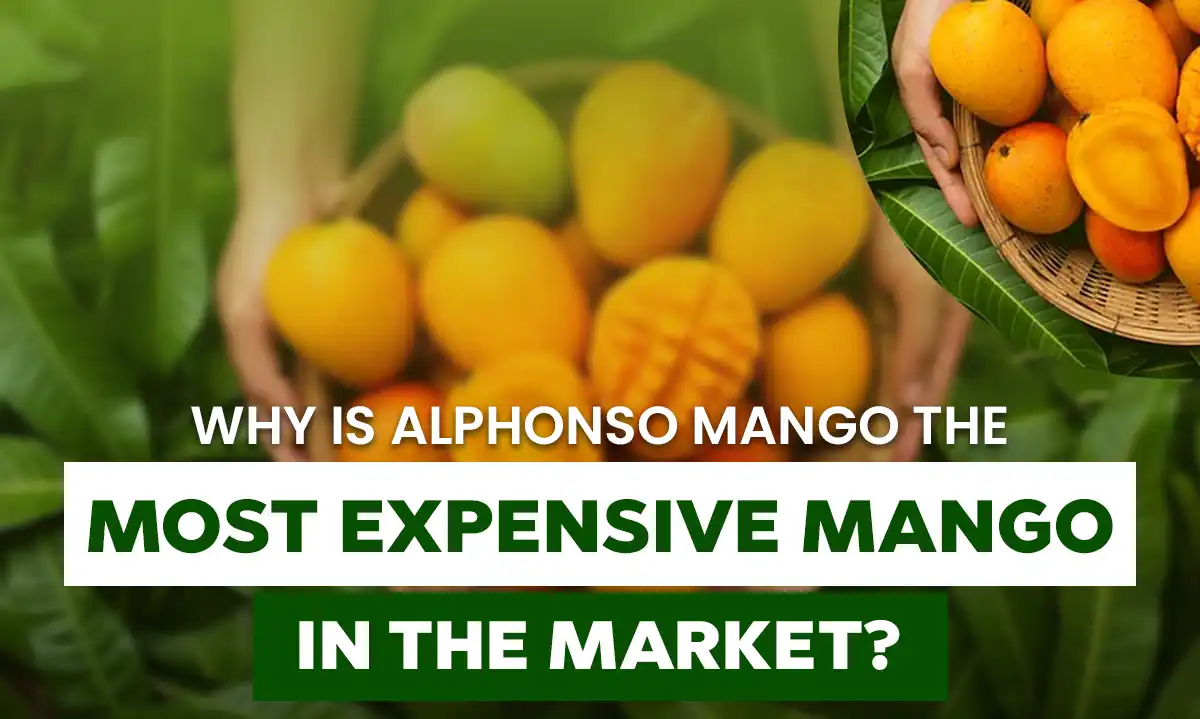The High Cost of Alphonso Mangoes:Why They’re So Expensive?

Introduction
Traditionally referred to as the "king of mangoes," Alphonso mangoes are valued for their brilliant color, great taste, and strong scent. Originating in India's western coast, especially the Ratnagiri and Sindhudurg regions of Maharashtra, Alphonso mangoes have become the most sought-after and costly variety on the worldwide scene. This blog investigates the elements that contribute to the high cost of Alphonso mangoes in Mango farm land market and the reasons behind their premium fruit reputation.
Unique Flavor and Aroma
Alphonso mangoes are quite expensive, mostly because of their distinctive taste and scent. Celebrated for its buttery, silky texture that melts in the mouth and ideal mix of sweetness and little acidity, the fruit of Alphonso mangoes differs from other kinds in their rich, tropical scent. Their unique taste and scent make them a favorite among customers and experts all over, thereby supporting their expensive price. Moreover, the diversity of the flavor profile—with layers of flowery and honeyed notes—offers an unparalleled sensory experience, enhancing the appeal and value of Alphonso mangoes.
Regions with limited growth
Grown in particular areas with special soil and climatic circumstances, Alphonso mangoes have outstanding quality. Alphonso mangoes find the ideal habitat in Maharashtra's coastal regions, especially in Ratnagiri, Devgad, and Sindhuderg. Laterite rock soil, mild temperatures, and low humidity together provide perfect circumstances for the fruit to acquire its unique taste. The restricted supply of real Alphonso mangoes resulting from limited geographic range of mango farms increases their market value. Maintaining the exceptional quality of these mangoes also depends much on the conventional farming techniques and the knowledge of nearby farmers, handed down over generations.
Seasonal Availability
Alphonso mangoes are a seasonal fruit, usually found from late March to early June. Their uniqueness and high demand during the mango season are enhanced by the brief harvesting time. Unlike some other mango varieties that could be available for longer periods of time, the limited availability window of Alphonso mangoes increases customer expectation and willingness to pay a premium price. Their great cost is further justified by this seasonality, which produces intensity and scarcity, further justifies their high cost. Every year, the excitement and anticipation surrounding the arrival of Alphonso mangoes enhance their attractiveness and perceived value, making them a very popular good.
Labor-Intensive Cultivation
Alphonso mango farming is costly and requires careful attention throughout the growing season. Farmers must closely monitor the trees, control pests and diseases, and ensure proper irrigation and fertilization to produce excellent fruit. Alphonso mangoes are sensitive; hence, they have to be picked by hand to prevent damage and bruises. This great effort and careful handling help to explain the higher production cost shown in the market pricing. To preserve the fruit's perfect condition, the post-harvest procedures—including sorting, grading, and packaging—also call for great manual labor and careful attention to detail.
Export Demand
Apart from India, Alphonso mangoes are highly sought after in other countries. Because of its exceptional taste and quality, nations including the United States, United Kingdom, Japan, and the Middle East import Alphonso mangoes. Exporting Alphonso mangoes adds more expenses, including packaging, shipping, and strict quality inspections, all of which affect the ultimate price. Alphonso mangoes' global market demand and export expenses help to explain their premium price. The logistical difficulties and legal restrictions of exporting perishable goods intensify the complexity and cost of delivering Alphonso mangoes to foreign markets.
Quality Certification
Several quality certificates and geographic indicators (GI) have been developed to guarantee consumers obtain real Alphonso mangoes. These certifications ensure that the mangoes satisfy high quality criteria and are really derived from the approved areas. Obtaining and maintaining these certificates costs farmers and exporters more money, which is included in the final price. These certifications' guarantees of authenticity and quality help to offset consumers' greater expenses. These certificates also help preserve the reputation of Alphonso mangoes by guaranteeing that consumers get the actual premium product and by stopping fake goods from saturating the market.
Cultural Significance
In Indian culture and cuisine, alphonso mangoes are especially prized. Often regarded as a delicacy, they find use in many classic meals, sweets, and drinks. In Indian civilization, the cultural value and great respect for Alphonso mangoes help to explain their premium fruit status. Their connection with celebrations and unique events strengthens their demand and eagerness among consumers to pay a higher price for this valuable mango type. The deep-rooted cultural link and function of Alphonso mangoes in joyful and ceremonial settings increase their value and appeal, making them a natural component of Indian cuisine.
Conclusion
The Alphonso mango's high price can be attributed to a combination of its distinctive taste and scent, limited growing areas, seasonal availability, labor-intensive Mango farming India, export demand, quality certification, and cultural value. Alphonso mangoes command the highest price on the market due to a combination of high demand and limited availability. For those who have experienced the unparalleled flavor of Alphonso mangoes, the premium price is just a small price to pay for such a magnificent fruit. As the height of mango perfection, the heritage and spirituality around Alphonso mangoes still enthrals and captivates mango actioners worldwide.
Latest blogs
JOIN OUR COMMUNITY !
Stay connected with Getfarms! Follow us on social media for the latest updates, exclusive offers, and a glimpse into the world of farmhouse living. Join our community today




























